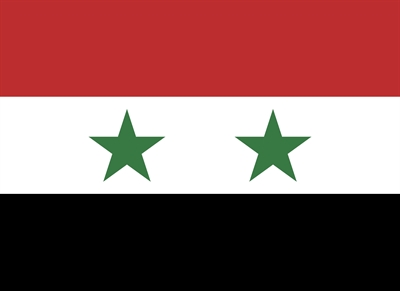Syrian Arab Republic - Human Rights Committee (LOIPR) - Death Penalty - August 2020
Country: Syrian Arab Republic
Type: Intl Mechanism Submission
Issues: Death Penalty, Detention, Due Process and Fair Trial, Expression and Opinion, International Advocacy, Legal Representation, Torture
Mechanism: UN Universal Periodic Review
Report Type: Stakeholder Report
The Advocates for Human Rights, along with The World Coalition Against the Death Penalty,?submitted a Suggested List of Issues on the Death Penalty in the Syrian Arab Republic for the 130th session of the Human Rights Committee.
Use of the death penalty in Syria continues to be a problem. The country has not taken the necessary steps to abolish the death penalty, and the Syrian Penal Code permits the application of the death penalty for crimes other than the intentional killing of a person. These death-eligible offenses include arson, terrorism, drug trafficking, and treason. The State Party Report concedes that the death penalty can be imposed for political activities, including non-violent expression of views or belief.
The armed conflict in the region has made it difficult to determine how many people are currently facing the death penalty, but there are reports of thousands of people under the sentence of death in Syrian prisons. In a 2017 report, Amnesty International estimated that officials executed anywhere from 5,000 to 13,000 people at one prison over a five-year period. These executions are often carried out swiftly and secretly without due process. In a large-scale effort, state officials and government forces have tortured people to extract confessions and to punish political dissenters despite legislation in the Syrian constitution and Criminal Code explicitly prohibiting the use of torture.
The List of Issues submission suggests several questions for the Syrian Government including:
- What steps has the State Party taken to reduce the number of crimes eligible for the death penalty and to limit the availability of the death penalty to the “most serious” crimes in accordance with the International Covenant on Civil and Political Rights (ICCPR)?
- What procedures are in place to ensure that no person is prosecuted or sentenced to death on terrorism-related charges for exercising their right to freedom of opinion and expression under the Covenant?
- What procedures are in place to ensure that individuals at risk of being sentenced to death have access to adequate, competent legal representation at all stages of proceedings and to ensure that trial proceedings comply with the Covenant?
- What efforts has the Syrian Government undertaken to: (a) investigate and remediate each alleged case of torture and cruel, inhuman, or degrading treatment in detention facilities; and (b) hold accountable the perpetrators of such acts?
- What procedures ensure that no court considers statements made under torture as evidence, except against a person accused of torture or other ill-treatment as evidence that the “confession” or other statement was made?
- What procedures are in place to allow courts to investigate and respond to a person’s allegation that a statement was made under torture or other cruel, inhuman, or degrading treatment?
- What safeguards are in place to prevent authorities from subjecting persons to incommunicado detention?
- What measures has the State taken to establish oversight and accountability to ensure compliance with fair trial standards?




